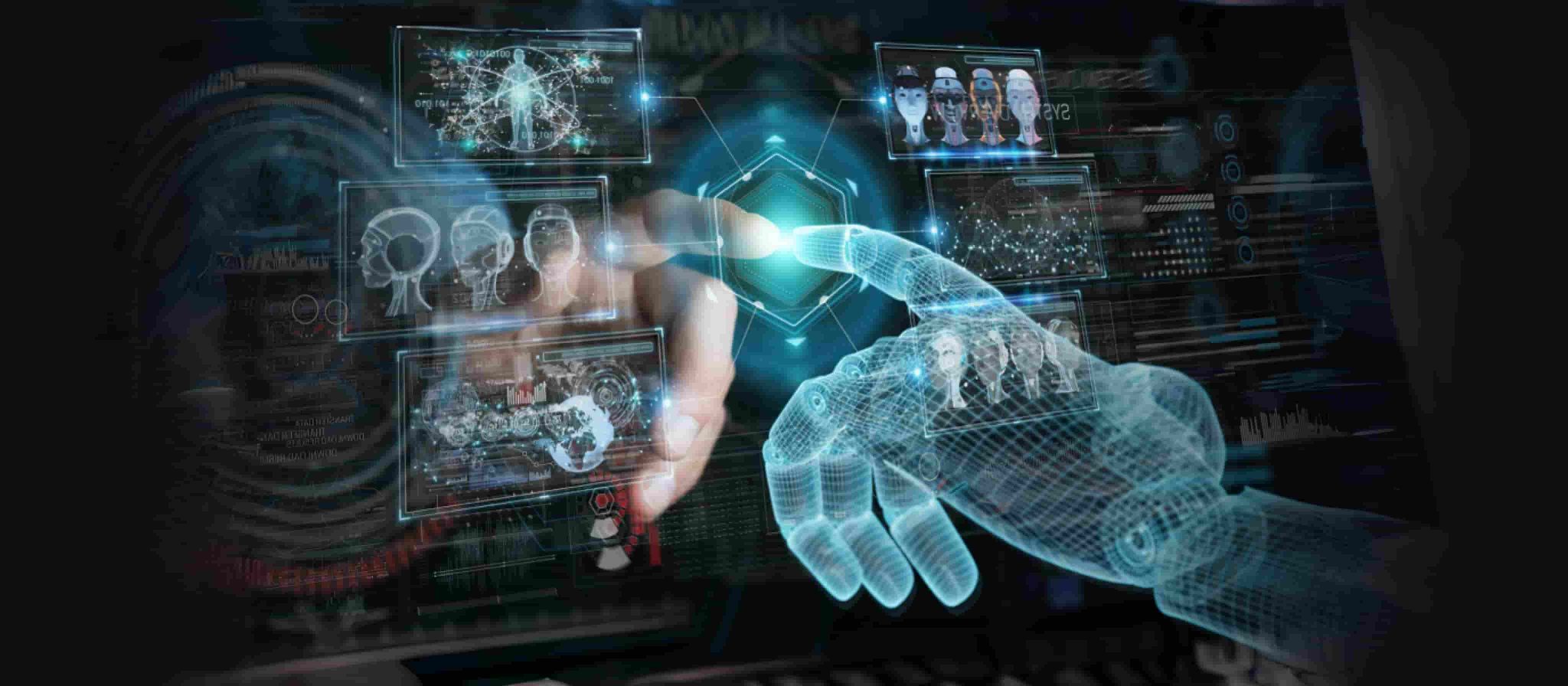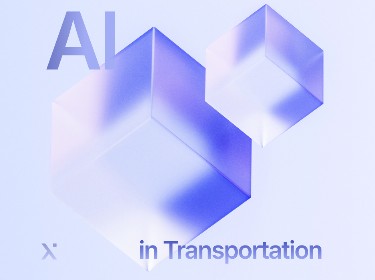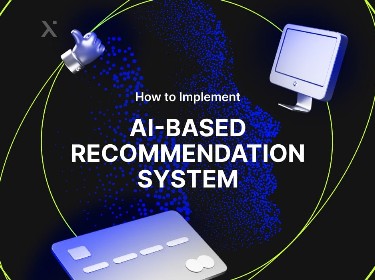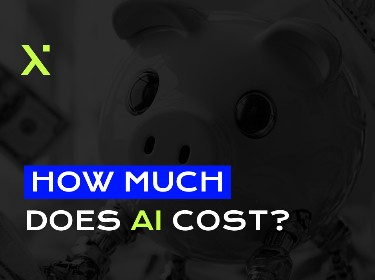AI agents are rapidly reshaping our world. From virtual assistants to autonomous vehicles, these digital counterparts are becoming integral to us. But what is the business value of AI agents and how can they generate profit?
The landscape of artificial intelligence is undergoing a dramatic transformation, with AI agents emerging as a pivotal force. Powered by the surging popularity of Large Language Models, these intelligent systems are increasingly automating complex tasks and driving business growth.
The global AI market is projected to reach a staggering $1,811 billion by 2030, according to a report by Grand View Research.
This article delves into the world of AI agents, exploring their core types, real-world applications, and the substantial benefits they offer.
PixelPlex AI development services span both custom from-scratch engineering and existing solution revamping. Take a look!
What are AI agents?
Essentially, AI agents are intelligent software entities, capable of perceiving their environment, making decisions, and taking actions to achieve specific goals. Unlike their static predecessors, these digital chameleons possess the uncanny ability to adapt, learn, and grow.
A recent study by Gartner predicts that by 2025, AI agents will be involved in 85% of customer interactions. This staggering statistic underscores the growing importance of these digital entities in shaping our world.
Think of an AI agent as a skilled strategist, constantly assessing the battlefield (your data) and making tactical decisions. Unlike traditional automation, which follows rigid rules, AI agents are equipped with the cognitive ability to adapt to changing circumstances. They are the digital pioneers exploring uncharted territories, learning from every interaction, and evolving their strategies accordingly.
How AI agents work
![]()
At the core of an AI agent lies a sophisticated algorithm that enables it to perceive, reason, learn, and act. Let’s break down this process:
- Perception: AI agents are equipped with sensors (digital or physical) that allow them to gather information from their environment. This could be data from the internet, a manufacturing plant, or even a social media platform.
- Reasoning: With the collected data, the agent employs complex algorithms to understand and interpret information. This involves pattern recognition, problem-solving, and decision-making.
- Learning: AI agents are constantly learning and improving. Through machine learning techniques, they can identify patterns, make predictions, and refine their actions over time.
- Action: Based on its perception, reasoning, and learning, the AI agent takes actions to achieve its goals. These actions can range from simple tasks to complex strategies.
For example, an AI agent in a retail setting might analyze customer purchasing patterns, predict trends, and automatically adjust inventory levels or pricing strategies. Or, in healthcare, an AI agent could analyze medical records, identify potential diseases, and suggest treatment options.
Check out our recent case – hypermarket warehouse automation with Digital Twins
What are the key components of AI agents?
An AI agent is a complex entity composed of three interconnected components: the architecture, the function, and the program, which together form its physical embodiment, intellectual capacity, and operational essence.
![]()
The body: architecture
An AI agent’s architecture is its physical or digital embodiment, the platform from which it operates and interacts with the world. It’s the skeleton supporting the intricate network of functions. This can range from the tangible hardware of a robot to the intangible infrastructure of a cloud-based software system.
Much like the human body adapts to different environments, AI architectures must be versatile to accommodate diverse tasks. For instance, a self-driving car relies on sensors, actuators, and powerful processors, whereas a virtual assistant operates within the confines of a digital realm, using algorithms and data centers as its foundation.
Take a look at our exhaustive guide to machine learning fraud detection
The mind: agent function
The agent function is the AI’s intellect, the bridge between raw data and purposeful action. It’s the brain interpreting sensory input and deciding on an appropriate response. To illustrate, a customer service chatbot must understand natural language, access relevant information, and generate helpful replies.
This cognitive process involves a complex interplay of machine learning models, knowledge bases, and decision-making algorithms. As AI continues to evolve, so too will the sophistication of agent functions.
The spirit: agent program
Bringing an AI agent to life requires the meticulous crafting of an agent program. This is the software soul that animates the architecture and executes the agent function. It’s the culmination of coding, training, and optimization, resulting in a system capable of autonomous behavior.
Consider a recommendation engine on an e-commerce platform. Its agent program involves vast amounts of data processing, pattern recognition, and user preference analysis to suggest products with uncanny accuracy.
What are the benefits of AI agents?
![]()
Efficiency
Imagine a workforce that never tires, makes no errors, and works at lightning speed. That’s the promise of AI agents. They are the ultimate productivity boosters, tirelessly handling repetitive tasks like data entry, customer service inquiries,and scheduling. This frees up human talent to focus on strategic thinking, innovation, and building stronger customer relationships.
Personalization
In today’s hyper-competitive market, standing out is crucial. AI agents are the ultimate personal shoppers for your customers. By analyzing vast amounts of data, they can predict preferences, tailor recommendations, and create highly personalized experiences. It’s like having a personal assistant for every customer, understanding their needs and desires before they even articulate them.
Scalability
Business growth can be a double-edged sword. On one hand, it’s a sign of success, but on the other, it can strain resources. AI agents are the ultimate scaling solution. They can handle increased workloads without breaking a sweat, ensuring seamless operations during peak periods or rapid expansion.
Availability
In today’s 24/7 economy, downtime is not an option. AI agents are the ultimate workaholics, operating tirelessly around the clock. This ensures uninterrupted service, support, and monitoring. Imagine a customer service team or a system that never sleeps and constantly monitors your operations for potential issues. This constant vigilance enhances customer satisfaction and protects your bottom line.
Cost-efficiency
The old adage “time is money” has never been truer. AI agents are masters of efficiency, streamlining processes and reducing operational costs. By automating routine tasks, they eliminate the need for a large human workforce, resulting in significant savings on salaries, training, and overhead. Additionally, their ability to optimize operations and identify cost-saving opportunities makes them a powerful financial asset.
Data-driven insights
Data is the new oil, and AI agents are the refineries. They can process vast amounts of data at incredible speeds, extracting valuable insights that can inform strategic decision-making. By understanding customer behavior, market trends, and operational patterns, businesses can gain a competitive edge.
Turn to our machine learning consulting and development team to start working on your own transformative ML-powered application
AI agents across business sectors
Finance
High-frequency trading firms employ AI agents to analyze market trends with lightning speed, executing trades in milliseconds. Beyond trading, these agents are the vigilant guardians of the financial system, detecting anomalies that hint at fraudulent activities. A study by Accenture found that AI-powered fraud prevention systems can reduce fraud losses by up to 70%.
Energy
Smart grids, powered by AI agents, are becoming the norm. These agents predict energy demand, optimize power distribution, and even detect potential outages before they occur. By analyzing data from millions of sensors, AI agents ensure a stable and efficient energy supply. According to the International Energy Agency, AI has the potential to reduce global electricity demand by up to 10%.
Transportation
Autonomous vehicles, once a distant dream, are becoming a reality, thanks to AI’s ability to process vast amounts of data in real time.
Ride-sharing services are leveraging AI agents to optimize routes, reduce wait times, and improve passenger experiences.
AI agents can be also used in logistics software development. AI agents are the brains behind efficient supply chains, predicting demand, optimizing routes, and minimizing transportation costs.
Healthcare
From drug discovery to patient care, these digital companions are enhancing every aspect of healthcare delivery. AI-powered diagnostic tools can analyze medical images with unparalleled accuracy, aiding doctors in detecting diseases at earlier stages. Healthcare software development services play a pivotal role in creating these AI-driven solutions, ensuring seamless integration into existing healthcare systems and workflows.
Personalized medicine is another frontier where AI agents excel, tailoring treatment plans to individual patients based on their genetic makeup and medical history. A study by McKinsey Global Institute estimates that AI could generate up to $100 billion in annual savings for the U.S. healthcare system.
Retail and eCommerce
Chatbots and virtual assistants are the new faces of customer support, providing instant responses to inquiries and resolving issues efficiently. These AI-powered helpers can handle a vast volume of interactions, freeing up human agents to focus on complex problems.
Moreover, you can ask professional retail software development services providers to create AI agents to analyze customer data to identify trends and preferences, enabling businesses to offer highly personalized experiences.
Key types of AI agents
AI agents can be built with different levels of complexity. There are five main types of AI agents, ranging from the most basic to the most advanced.
![]()
AI agents examples
Personal assistants
Imagine having a highly intelligent, always-available assistant at your beck and call. This is the reality of AI-powered personal assistants like Siri, Alexa, and Google Assistant. These digital companions are more than just voice-activated tools, they’re evolving into sophisticated entities that understand our preferences, habits, and even emotions. A study by Juniper Research predicted that by 2024, over 85 million US households will use smart speakers, highlighting the growing reliance on these AI agents.
Robots-helpers
From the bustling factory floors to the serene confines of our homes, robots are increasingly taking on tasks once considered exclusively human. These AI-driven machines are equipped with advanced sensors and decision-making capabilities, enabling them to navigate complex environments and execute tasks with precision.
Consider the rise of autonomous vehicles, which are being tested on roads worldwide. According to a report by McKinsey, the global market for autonomous vehicles could reach a staggering $1.2 trillion by 2030.
Gaming strategists
The realm of gaming has been a fertile ground for AI innovation. Gaming AI agents have evolved from predictable opponents to formidable adversaries capable of outmaneuvering human experts. Deep Blue’s historic victory over Garry Kasparov in chess and AlphaGo’s triumph in the complex game of Go are iconic examples. These AI agents employ sophisticated algorithms and machine learning techniques to analyze game states, predict outcomes, and make optimal moves.
Fraud detection agents
Financial institutions are at the forefront of deploying AI agents to combat the ever-evolving landscape of fraud. These digital sleuths tirelessly analyze vast amounts of transaction data, identifying patterns and anomalies indicative of fraudulent activities. Fraud detection with machine learning enhances these efforts by continuously improving the system’s accuracy through data-driven insights and adaptive algorithms. By swiftly flagging suspicious behavior, AI-powered fraud detection systems help protect consumers and businesses from financial losses.
Explore our predictive analytics services to improve forecasting and make data-driven decisions that benefit businesses in your industry and beyond
Future of AI agents
The potential of AI agents extends far beyond those examples we’ve mentioned. However, with great power comes great responsibility. As we develop AI agents, we must also consider the ethical implications. How do we ensure that these agents are aligned with human values? How do we protect against misuse and bias? These are critical questions that must be addressed as we move forward.
Our machine learning development company believes that AI agents represent the next frontier of technological innovation. We are committed to harnessing the power of AI to create solutions that benefit society. Our team of experts is ready to collaborate with you to bring your AI agent vision to life.
Are you ready to shape the future? Book a consultation with our PixelPlex team today to discuss your AI agent ideas. Together, we can build a world where humans and AI work in harmony to achieve extraordinary things.




